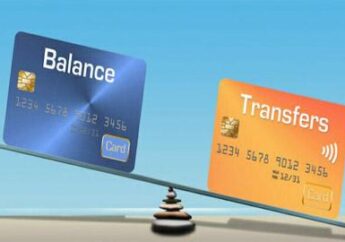5 Tips for Finding the Best Credit Card
by Arina Smith Banking Published on: 03 March 2021 Last Updated on: 31 October 2023

Most credit cards can be rewarding but finding the card that offers the most rewards can be challenging. Each person has unique spending habits, and a credit card that works well and rewards someone else may not be the right card for you.
Learn the five questions you need to ask yourself before applying for your next credit card to ensure you find the right match. Carefully considering these details can help you find the best credit card with the top rewards for your unique spending style.
1. Is a credit card with an annual fee the right choice?
Credit cards often offer welcome bonuses, allowing cardholders to walk away with loads of extra points or cashback. They may also get an annual fee rebate or waiver for the first year — usually saving members upwards of $120 or more.
However, cardholders will have to consider the annual fee for the following years after the promotion expires. This fee should not deter prospective account holders, though. Credit cards with annual fees often offer higher earn rates on purchases, better benefits or insurance coverage, and more incentives than those with no fee.
In the end, the card with an annual fee may offer enough rewards to outweigh the cost and provide more benefits than a no-fee card. People should consider their spending habits and whether they use their credit cards enough before making their decision.
2. What kind of rewards do you want to earn?
Credit card reward programs typically come in four varieties, including cashback, cash alternatives (grocery rewards), travel rewards, and flexible reward points. Choose a credit card that aligns with how you want to spend your rewards in the future.
Cashback rewards can be very straightforward. Cardholders can quickly determine how much they will earn as the value is generally a percentage of the amount spent on the card.
However, travel programs typically offer a better value for points. Cardholders will always get the best value for their points when they redeem their travel rewards. This detail applies to travel rewards (travel redemption only) and flexible reward programs (cards offering cash and travel redemption).
Cardholders would be better off with a travel rewards card than a cashback card if they plan to use their points toward travel.
Here is a quick tip:
When shopping, it can help to have more than one credit card. Select the credit card that offers the most rewards for each purchase. Use a grocery rewards card at the grocery store and a travel rewards card at restaurants — whichever provides the best return on your spending.
3. Does the loyalty program offer the top value for rewards?
When choosing a loyalty program like BMO Rewards, Scotia Rewards, Aeroplan, or AIR MILES, it is crucial to look at the rewards’ redemption value.
While all the above companies offer travel rewards and have very flexible loyalty programs, the points or Miles are not worth the same amount.
The programs can look remarkably similar at first and may offer the same number of points for every $1 spent on groceries, for example, or other spending categories. But when cardholders go to redeem their reward balance, they may find a disparity.
To find the value, search the reward catalog and divide the item price by the number of points required to buy it.
Here is a simple scenario:
A cardholder wants a gift card for $100 and needs 13,400 points to buy it from the reward catalog. The value per point is 0.0075 (100÷ 13,400). But the cardholder changes their mind and saves their points for a bigger purchase. They now want to buy a flight for $300, and the cost is 30,000 points. The value per point is significantly higher at 0.01 (300 ÷ 30,000). This cardholder got the best value when redeeming their travel rewards for a flight.
This math is time-consuming. Determining how much you spend on the card annually and how much each point is worth is also complicated. Doing this calculation for each card would be very cumbersome.
Luckily, the RATESDOTCA credit card marketplace does the work for you and compares the best credit cards in Canada in one place. The tool converts the value or reward points into a dollar amount to directly compare all the cards in Canada.
4. Does the credit card offer additional benefits or perks?
Credit cards offer more than just points or cashback. Depending on the card, users may be happily surprised to see travel insurance or shopping coverage available. These are more standard features. Some more exclusive benefits include mobile device insurance or price protection.
In addition to those features, some cards offer airport lounge access, priority boarding or priority check-in, free checked baggage, or VIP access to private security lanes at the airport.
Other cards will offer convenient concierge services or access to special hotel collections or discounts. A few credit cards also include roadside assistance. Digital banks like Zolve have a high credit limit especially lucrative while looking at credit card for students with no credit history. They also provide financial aid like study loans in the U.S for higher education
The RATESDOTCA credit card marketplace allows users to quickly compare the leading credit cards in Canada and see the top five perks for each card.
Having these perks can spare cardholders from purchasing them out of their own pocket and help them save money. This detail circles back to the annual fee again. It’s unlikely to see lounge access or extended travel insurance coverage on a no-fee card. A credit card’s annual fee may almost pay for itself for cardholders who usually purchase these features.
5.What is the interest rate?
If you carry a balance on your credit card month-over-month, a low-interest rate may be more beneficial than earning rewards.
Many credit cards feature a standard annual interest rate of 19.99% on purchases. However, there are many great low-interest credit cards and balance transfer options that can help cardholders pay down their debt faster.
Cardholders who transfer their balance may be able to take advantage of interest rates as low as 1.99%. Though a balance transfer fee typically applies. This fee is generally minor compared to the interest cardholders would otherwise accrue on their balance. These balance transfer fees are usually around 1% to 3% of the amount transferred.
Find a low promotional interest rate on a BMO credit card at RATESDOTCA.
Compare credit cards:
Most people get their first credit card through their bank because it is convenient, and everything is in one place. They’ll then end up sticking to the same card even when it no longer offers the best rewards or features for their current needs.
A young professional will have a drastically different lifestyle than a snowbird. That is why it is essential to reassess your spending and money products with each milestone and life change.
Compare credit cards often to ensure you are getting the most rewards for your spending.
RATESDOTCA
360 Adelaide Street West, Suite 100
Toronto, ON M5V 1R7
Read Also:







































































































